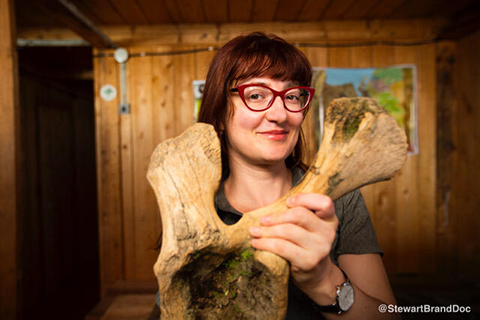Date:
October 23, 2024
6:00 pm
← Go back
Anya Bernstein – Pleistocene Park: Engineering Wilderness in a More-than-Human World
Pleistocene Park is a large-scale science experiment in Arctic Siberia in the form of a future-oriented rewilding project with the goal of mitigating climate change. The Park’s creators hypothesize that introducing large herbivores into the area will slow the thawing of permafrost.
Using the approach of multispecies ethnography, in attending to the nonhuman agencies at work in the project, Anya Bernstein (Harvard) argues that the Park differs from other rewilding projects, which are usually ecocentric, in emerging as a survivalist project with a distinct anthropocentric bent. Even so, however, the Park’s survivalist goal for humans coexists with ontologies based on collaboration and mutual aid between humans and nonhumans, and between organic and inorganic matter, with extensive agency assigned to nonhuman others.
Drawing on ethnographic fieldwork within the frame of the Park’s various genealogies, she traces the project’s underlying assumptions in equal measure to the history of Russian science and to the experience of the Park’s lead scientists of sociopolitical rupture following the collapse of the Soviet Union. As a case study, Pleistocene Park is especially suited to exploring issues of time and temporality, apocalypticism and redemption, extinction and eternity, in addition to particular visions of the natural and the human.
Anya Bernstein is Professor of Anthropology at Harvard University. She is the author of The Future of Immortality: Remaking Life and Death in Contemporary Russia (Princeton University Press, 2019) and Religious Bodies Politic: Rituals of Sovereignty in Buryat Buddhism (University of Chicago Press, 2013). She is currently working on her third book, Pleistocene Park: Extinction and Eternity in the Russian Arctic.

Location:
6 East 16th Street, 11th Floor, Wolff Conference Room
